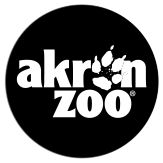The Akron Zoo has joined the Association of Zoos and Aquariums and over 100 accredited zoos and aquariums around the world who have collectively pledged over $1 million dollars to help save the vaquita porpoise. This small porpoise is native the Gulf of California and is the worlds most endangered marine mammal. Also joining the efforts to save this species from extinction are the Mexican government, who has pledged over $3 million towards the effort, The VaquitaCPR (Conservation, Protection and Recovery) emergency rescue plan, and the United States Navy.
The vaquita, a rare porpoise that was first discovered in 1958, is indigenous to the northern part of the Gulf of California. More than half the population has been lost in the last three years, mainly due to illegal fishing operations, leaving what is believed to be no more than 30 individuals.
The Akron Zoo is not only supporting the effort now, but the Akron Zoo Chapter of the American Association of Zoo Keepers will be hosting a “Vino for Vaquita’s” event on September 7 and 8, 2017 at the Wolf Creek Winery in Norton. All proceeds raised from the event will be donated to the VaquitaCPR emergency rescue plan. For more information visit https://www.facebook.com/AkronAAZK/
“The Akron Zoo’s mission is to connect your life with wildlife while inspiring lifelong learning and conservation action. We have taken action, together with our zoo and aquarium colleagues, to save this critically endangered species and we invite all residents of Northeast Ohio to do the same! Every little bit helps like purchase only sustainably sourced seafood or consider supporting our conservation fund, so we can continue and expand our work to save species from extinction,” said Doug Piekarz, Akron Zoo president & CEO. “This valiant effort may be the last chance this species has to survive. As part of the world’s largest conservation movement, AZA accredited zoos and aquariums will not sit idle and watch a species vanish.”
“Zoos and aquariums have a proud history of working to save species from extinction, including black-footed ferrets, the California condor, the Florida manatee and the blue iguana,” said Dan Ashe, AZA president and CEO. “This $1 million commitment by our members is the largest contribution other than the Mexican government. It's a bold and heroic statement that we will do everything we can to prevent the extinction of the vaquita. The next step is to join the Mexican government and the VaquitaCPR consortium to support the implementation of the rescue plan.”
“The situation is urgent, and I'm proud that our members have responded, so significantly,” Ashe said. “But while this is extraordinary, it is not unusual. AZA-accredited aquariums and zoos are dedicated conservation organizations.”
Nearly two dozen species would not be on Earth today were it not for zoos and aquariums accepting the challenge and working with partners to prevent extinction. It is also the reason AZA and its members established SAFE: Saving Animals From Extinction® (SAFE), a program to aggregate and coordinate member resources and expertise in saving endangered species, like the vaquita.
As with other species saved through efforts by AZA-accredited zoos and aquariums, the VaquitaCPR emergency rescue plan calls for capturing and relocating vaquitas to a temporary sanctuary while crucial efforts aimed at eliminating illegal fishing and removing gillnets from their environment continue.
Ashe said, "This is a heroic, high-risk endeavor. Vaquita has never been held even temporarily in human care, and little is known about the feeding, reproduction or behavioral needs of this animal. However, it is certain that the vaquita will go extinct if this rescue doesn’t begin immediately.”
The Akron Zoo is open 361 days a year. Hours are 10 a.m. – 5 p.m. and admission is $12 for adults, $10 for senior citizens, $9 for children (ages 2-14). Children under two are free and parking is $3. For more information visit www.akronzoo.org or call (330) 375-2550.
Founded in 1953, the Akron Zoo is a non-profit, world conservation zoo with over 700 animals from around the world. Located just west of Downtown Akron, the zoo strives to connect your life to wildlife while inspiring lifelong learning and conservation action. The Akron Zoo is accredited by the Association of Zoos and Aquariums (AZA). With its more than 200 accredited members, AZA is a leader in global wildlife conservation, and your link to helping animals in their native habitats.
About AZA
Founded in 1924, the Association of Zoos and Aquariums is a nonprofit organization dedicated to the advancement of zoos and aquariums in the areas of conservation, animal welfare, education, science, and recreation. AZA is the accrediting body for the top zoos and aquariums in the United States and eight other countries. Look for the AZA accreditation logo whenever you visit a zoo or aquarium as your assurance that you are supporting a facility dedicated to providing excellent care for animals, a great experience for you, and a better future for all living things. The AZA is a leader in saving species and your link to helping animals all over the world. To learn more, visit www.aza.org.
About VaquitaCPR
VaquitaCPR is led by Mexico’s Ministry of Environment and Natural Resources (SEMARNAT). The National Marine Mammal Foundation, The Marine Mammal Center, and the Chicago Zoological Society are primary partners in this extraordinary conservation effort. Key collaborators in Mexico include the International Committee for the Recovery of the Vaquita (CIRVA), the National Institute of Ecology and Climate Change (INECC), the Mexican Association of Habitats for the Interaction and Protection of Marine Mammals (AMHMAR), and Acuario Oceanico. European collaborators include Dolfinarium Harderwijk, Aarhus University, and Fjord&Baelt. Additional United States collaborators are Duke University and the Marine Mammal Commission, with NOAA Fisheries providing technical expertise. The Association of Zoos and Aquariums, Dolphin Quest, SeaWorld, Vancouver Aquarium, and the International Marine Animal Trainer’s Association are offering support and expertise to the program and assisting with fundraising.
